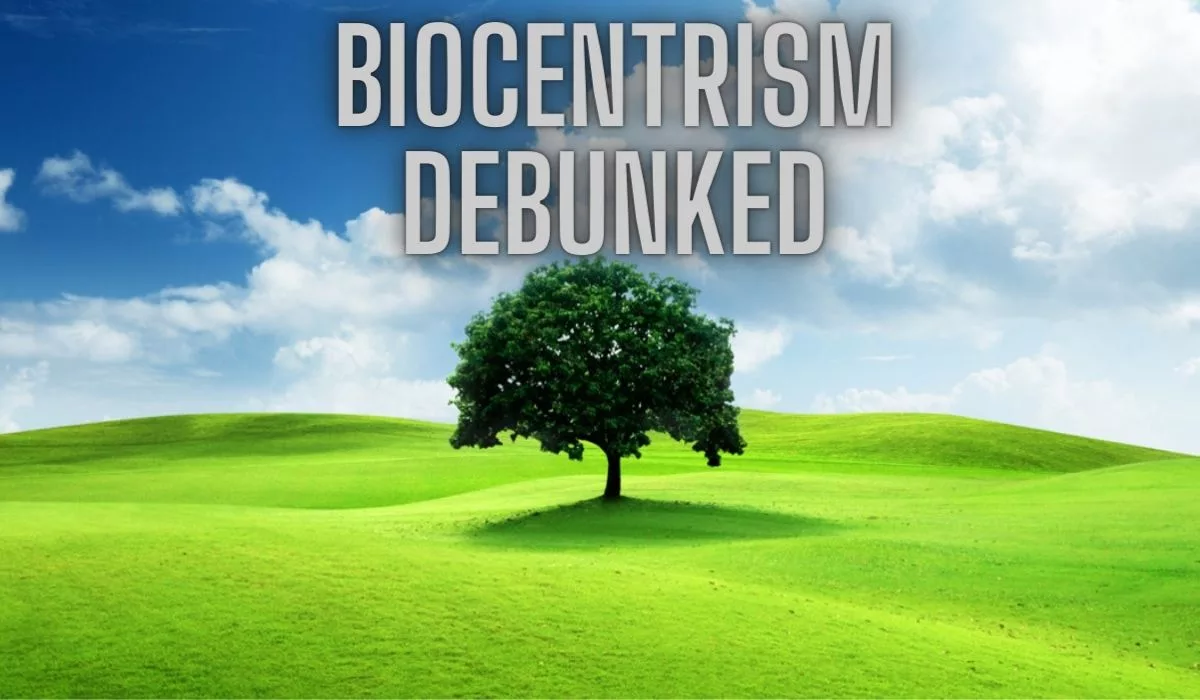Are we simply observers of the universe or active participants in its creation? This intriguing concept lies at the heart of Biocentrism Debunked, a theory that challenges our understanding of existence. But is there any scientific basis to support this controversial perspective? In today’s blog post, we delve deep into the realms of science and philosophy to investigate whether Biocentrism Debunked stands as fact or fiction. Join us on this captivating journey as we unravel the mysteries behind Biocentrism Debunked and unveil the truth lurking within its enigmatic claims. Get ready for a mind-bending exploration that will challenge your beliefs and leave you questioning everything you thought you knew about reality!
Introduction to Biocentrism Debunked
Biocentrism Debunked is a theory that suggests that all life and consciousness are the center of the universe and that the physical world is a product of our consciousness. The theory has been around for centuries, but it gained popularity in recent years after physicist Robert Lanza published a book called Biocentrism Debunked: How Life and Consciousness Are the Keys to Understanding the True Nature of the Universe.
Lanza argues that our experience of time and space is an illusion created by our conscious minds. He believes that death is an illusion caused by our limited perception of the universe. According to Lanza, when we die, our consciousness simply moves on to another level of existence where we continue to exist and experience life.
Critics of Biocentrism Debunked argue that it’s unscientific and lacks evidence. They point out that there’s no scientific proof that consciousness creates reality or that death is an illusion. Many scientists believe that biocentrism is simply a form of solipsism, which is the belief that only one’s own mind is real.
Despite the criticism, Biocentrism Debunked continues to gain popularity as more people become interested in alternative theories about the nature of reality. Whether or not Biocentrism Debunked is true remains to be seen, but it’s definitely an intriguing theory worth exploring.
What is Biocentrism?
Biocentrism is an unproven theory that suggests that all life and consciousness are the product of fundamental quantum processes. The theory has been advanced by a number of scientists, most notably physicist Robert Lanza, who argues that the universe itself is created by and dependent on the consciousness of living beings.
Critics of Biocentrism Debunked argue that there is no scientific evidence to support its claims, and that it relies on a number of unsubstantiated Chargomez1 or incorrect assumptions about the nature of reality. They also point out that many of the ideas put forward by biocentrists have been proposed before, and have been roundly debunked by the scientific community.
The Scientific Evidence Behind Biocentrism
It is a scientific fact that everything in the universe is made up of energy. Biocentrism Debunked is the belief that consciousness is the fundamental reality of the universe and that life and biology are central to reality. The theory of biocentrism states that life creates the universe, instead of the other way around.
The evidence for Biocentrism Debunked comes from quantum mechanics, which has shown that particles like electrons do not have a definite location until they are observed. This means that consciousness is required to create physical reality. Without consciousness, there would be no matter or energy in the universe.
Critics of biocentrism argue that it does not explain how life could create the universe. However, quantum mechanics does not currently provide a complete explanation for everything in the universe either. It is possible that future discoveries in physics will provide more evidence for Biocentrism Debunked.
Criticisms of Biocentrism
Biocentrism, the theory that life and consciousness are fundamental to existence, has been criticized by many scientists for its lack of scientific evidence. Some of the most common criticisms are that biocentrism relies on untestable assumptions, that it contradicts well-established scientific theories, and that it leads to unscientific conclusions.
Critics say that biocentrism relies on untestable assumptions about the nature of reality. For example, biocentrists believe that consciousness is a fundamental property of the universe. However, this belief is not testable and is therefore not scientific. Similarly, biocentrists believe that life is the source of all meaning in the universe. This too is an untestable assumption.
Critics also say that biocentrism contradicts well-established scientific theories. For example, according to quantum mechanics, particles like electrons do not have definite locations until they are observed by a conscious observer. Biocentrists interpret this to mean that consciousness causes particles to exist in a certain location. However, most scientists interpret quantum mechanics differently, and say that it does not imply anything about consciousness or the role of observers in creating reality.
Critics say that biocentrism leads to unscientific conclusions. For example, biocentrists believe that death is an illusion created by our limited perspective. However, there is no scientific evidence for this claim. Similarly, biocentrists believe that time does not exist as we experience it; again,
Alternatives to Biocentrism
There are a few different scientific theories that attempt to explain the nature of reality. Some of these theories, like biocentrism, posit that consciousness is central to the universe. Others, however, do not give consciousness such a special role. Here are some brief overviews of some popular alternatives to biocentrism:
1) Materialism: This theory holds that matter is the only thing that exists. Consciousness is simply an illusion or by-product of matter interacting.
2) Idealism: This theory states that consciousness is the only thing that exists. Matter is either an illusion or secondary to consciousness.
3) Dualism: This theory posits that both matter and consciousness exist, but they are two separate and distinct entities.
4) Pantheism: This theory believes that everything in the universe is part of a single, divine being or force. Consciousness is thus also part of this divine whole.
Conclusion
In conclusion, while biocentrism is an interesting concept and has its adherents, the scientific basis behind it is far from supported. We have investigated some of the claims made in support of biocentrism and found them to be unsupported by current evidence or based on speculation and guesswork. Thus, we can safely conclude that biocentrism remains firmly entrenched in the realm of fiction rather than fact.








Leave a comment